Healing Narratives: The Power of Storytelling as a Therapeutic Tool for Traumatized Homeless Youth
Youth homelessness is a highly stigmatized phenomenon that much of the public does not understand (Kidd 2024). Many people often assume that the youth somehow caused their own homelessness (that is, they ran away from home or rebelled against their family). However, homeless youth are often victims of complex family politics, various forms of abuse, or sudden tragedy that steals their support systems away (The Homeless Hub 2009). There are simply not enough youth stories being shared to address this misunderstanding, but sharing those stories is easier said than done.
Compounding these is the fact that youth victims settle into mindsets of “the immediate, here and now,” in which they think less about long-term plans of school, careers, family reunification, and relationship-building. To survive, homeless youth often suppress their traumatic memories, thoughts, and emotions. This internal struggle continues even after they are stably housed and supported. The intrinsic goal of “My Story, My Power: Strength in Storytelling”, is to help youth safely leave this mindset behind and begin to see a future for themselves.
My Story,” led by Mya Moniz, REST Centres’ Peer Support Worker, and Alya Harvey, REST Centres’ Program Assistant, is designed to mobilize youth to tell their stories from a place of empowerment rather than victimhood. Our goal is not only to create a wealth of stories that depict various experiences of youth homelessness but to also empower youth to see that they have built power through what they have overcome. Youth participating in “My Story” exercise agency in telling their own stories through creative mediums of their choice, which helps them process.
When a young storyteller joins our program, we start by building their confidence with self-empowerment exercises, sharing personal stories of lived experience and success stories, and establishing the importance of having our own voices be heard. Then, we help them dig deep and find their story—creative exercises to jog some memories, reflection activities in group and independent settings, and all the emotional support we can provide as they walk a path only they know the way on. Finally, once they find the story they wish to tell, we show them how. “My Story” equips youth with the tool, skills, and language to tell their stories. The program covers the various styles of storytelling (fiction or allegory versus non-fiction, story arcs), how “use of self” can be used to advocate for change and connect with communities, as well as exploring different mediums through which to tell a story (written, poetry, spoken word, rap, art, photography, video, etc.), as necessary.
The “My Story” village is strong, with numerous community members and organizations coming together to support the vision. Without their belief and bountiful support our vision for this program would not have been possible.
As the program comes to a close, our youth storytellers have created a wealth of practical, impactful creative projects that depicts a personal lived experience of youth homelessness and/or adjacent issues. “My Story” has proven, so far, to be very influential in the lives of its participants.
Domian, a visual artist and one of the program’s Youth Storytellers, had this to say about her experience: “Participating in the program has helped me to be self aware most especially on my weaknesses and to accept the reality of life, it has helped to be patient and positive minded in relation to anything that happens in my life and basically the seasons in life and how to adjust to each situation. This program has prepared a positive view of the future and this has made it easy to navigate the paths of life […] My project has made me realize how resilient I have been through my journey in life and to be patient as everything falls into place when the time is right , I have learnt to be my own voice as well which is the major reason why I chose this project in particular.”
Another youth storyteller and writer, Kurgeena, shared similar sentiments: “Programs like [My Story] mean so much to me as someone who wants to go into social work and create a space for youth to be creative as a way of healing and personal growth. I feel so inspired because of you and everyone that does their part to make sure the doors are open […] for us to be our most creative selves. Thank you for continuing to make me feel seen and heard time and time again!”
If you want to catch a glimpse into our final showcase and graduation for “My Story, My Power”, you can check out this website to view our archive of Voices of Freedom: A Storyteller’s Soiree and see all the youth’s projects!
Special Thanks:
Dagma Koyi, Founder and Executive Director, REST Centres.
Ben Bempah (PhD). Operations Director, REST Centres
Laidlaw Foundation and their Youth Action Fund for making this program possible.
Mya Moniz, Peer Support Worker, REST Centres.
Alya Harvey, Program Assistant, REST Centres,
Danielle Nevado, Program Facilitator, REST Centres.
Peta-Gaye Nash, Author.
Khalil Dorival, Public Speaker, Khalil Dorival Enterprises.
Lance Constantine, Speaker and Visionary, Speakers University
O Stephen Peart, Author, Released Expressions.
Kandice Henry, Founder and Director, Shining Lighte Youth Charity.
Katrina Abrahams, Artist, Abrahams Fine Art.
Michelle Bilek, Real People Collaborations.
Doug Grundman and Steve Eliot, Writers Collective of Canada.
Drue Murray, Success Coach, Family Centre of Alberta.
Sources:
Kidd, A. S. (2024). Finding home: Policy Options for addressing homelessness in Canada. 3.5 Social Stigma and Homeless Youth | The Homeless Hub. https://www.homelesshub.ca/resource/35-social-stigma-and-homeless-youth
The Homeless Hub (2009). Why do Young People Become Homeless? The Homeless Hub. https://www.homelesshub.ca/resource/why-do-young-people-become-homeless


